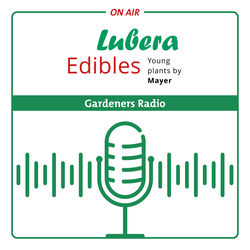 Eternal vegetables? Can vegetables be eternal? Of course, there is a bit of a wink in this term: nothing is eternal, and certainly not anything living... But the term - a Lubera brand, by the way - positions itself perfectly against what we traditionally perceive as vegetables: Vegetables are the quick garden culture, they come to leave right away. Planted, and already harvested again. What is so fast in cultivation (more and faster gives more) causes problems in logistics (of one's own household, from the customer's point of view). Buying seedlings again now? And where I always drive by, the desired species/variety is just sold out again. EverVeges® bring calm to this hurry and bustle. How? You can find out in this podcast.
Eternal vegetables? Can vegetables be eternal? Of course, there is a bit of a wink in this term: nothing is eternal, and certainly not anything living... But the term - a Lubera brand, by the way - positions itself perfectly against what we traditionally perceive as vegetables: Vegetables are the quick garden culture, they come to leave right away. Planted, and already harvested again. What is so fast in cultivation (more and faster gives more) causes problems in logistics (of one's own household, from the customer's point of view). Buying seedlings again now? And where I always drive by, the desired species/variety is just sold out again. EverVeges® bring calm to this hurry and bustle. How? You can find out in this podcast.
You have the option of playing the podcast as audio or video.
Audio: EverVeg®
Video: EverVeg®
Podcast content:
- Definition 'EverVeg®'
- What are the criteria for selection?
- Examples of plants:
- Rhubarb - breeding at Lubera
- Artichokes - variety test for winter hardiness in CH
- Liquorice - the very edge of the range
- Further examples:
- Perennial kale/tree kale, sea kale, skirret
- What is still to come?
- Is the EverVeg® also being bred?
- Young plants - when are they available?
- How and when are they produced?
- Can they all be produced together? Differences between the individual species?
- What does the future of the EverVeg® look like?
Read also our blog articles about EverVeg®
- EverVeg® – the advantages for hobby gardeners, for retailers and for producing vegetable plants
- Allium young plants – onion plants as EverVeges®
- Production of Allium plants for trade and retail
- Tree kale – the hardy and perennial cabbage plant
- Tree kale young plants – the assortment and production
- Root power – a look into the future of rhubarb
- Advantages of Micro-Propagated Rhubarb
